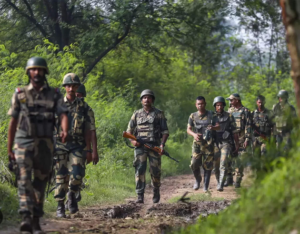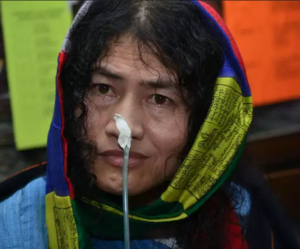Recently, AFSPA was extended to four districts of Assam for another 6 months by the Ministry of Home Affairs, effective from April 1.
Armed Forces Special Powers Act (AFSPA) is an act which was passed in 1958 giving armed forces special power in ‘disturbed areas.’
What is AFSPA?
AFSPA was passed giving the armed forces power to kill anyone in contravention of the act for the maintenance of public order by giving a warning first.
It gives armed forces the right to destroy shelter or infrastructure which can be used to attack or for illegal use and arrest anyone without a warrant whom they think has done or can do any cognizable offence. It also gives the armed forces the power to enter and search without a warrant on any premise that they believe is being used for wrongful purposes.
AFSPA Extended for 6 months in AP, Nagaland, Assam

Eight districts of Nagaland where AFSPA will be extended are Dimapur, Niuland, Chumoukedima, Mon, Kiphire, Noklak, Phek and Peren.
In Arunachal Pradesh, the districts of Tirap, Changlang and Longding and the areas within the jurisdiction of Namsai, Mahadevpur and Chowkham were declared as ‘disturbed areas’ in the notification.
Now from April 1st, the AFSPA will be extended in Assam too and will cover areas of Tinsukia, Dibrugarh, Charaideo and Sivasagar districts. This extension will extend till 31st September 2024.
This extension was approved by the union government based on the report submitted by the state government. The state report asserted that there was an improvement in law and order except for some militant organizations. The Centre decided to maintain the status quo and so the act was extended further.
Criticism of AFSPA
Over the years there have been several years of protest against the act.
Irom Sharmila is one such name which you cannot miss when it comes to fighting against AFSPA. She was the one who was on a fast for 16 years being forced fed by the police by a nasal tube. She started this fast as a sign of protest against the Malom massacre by sitting near a shelter with a placard saying that she would protest till AFSPA was repealed.

People say that AFSPA gives the army harsh powers. Any civilian casualties in the area are named “atrocities” by the armed forces. The reason behind this is that the army uses unreasonable ways and may commit unfair practices because they are protected by the law. This act goes against the human rights of people living under it as it gives the army exceptional powers.
In 2017, the Union Home Ministry answering an RTI informed that Jammu and Kashmir had the highest number of human rights violations after Assam. The credit for this is given to the AFSPA Act which saves the army personnel from any actions.
Many activists label AFSPA as a draconian, discriminatory, and oppressive law that transforms India from a democratic country to an authoritarian giving the forces to commit discriminatory attacks on innocent citizens.
Future of AFSPA
The AFSPA has currently been extended and turns out that looking at the terrorism and insurgencies by trained militias, the act in some areas becomes a necessity.
Earlier General Arvind Sharma reiterated that AFSPA is “absolutely essential” to tackle insurgency in the country. “…without AFSPA, the army will not be able to function in insurgency situations”.
Army officials also cite boosting the morale of the army as the reason to not scrutinize them in this area, but the army makes sure to act if the act is misused.
Even though Amit Shah said that the act will be repealed soon from Jammu & Kashmir, this Act will not be repealed from insurgency areas in the northeast – not at least for the next 6 months.











